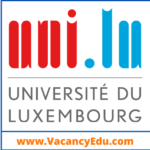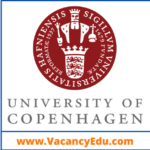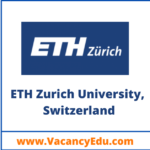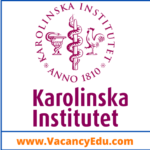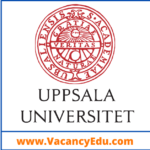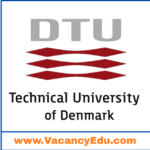Coventry University, England invites online Application for number of Fully Funded PhD Degree at various Departments. We are providing a list of Fully Funded PhD Programs available at Coventry University, England.
Eligible candidate may Apply as soon as possible.
(01) PhD Degree – Fully Funded
PhD position summary/title: Technologies of care: fostering nature-relatedness and environmental practice through social-technological innovation
This doctoral project investigates the ways in which digital technology mediates relationships between humans and nature. It critically examines the potential for digital technology to both consolidate and dissipate the human-nature divide, as well as the ways in which this is being addressed and utilised by digital innovators. Combining case-study based primary research and secondary data analysis the study will focus in particular on the societal uptake and impact of digital biodiversity tools which seek to combine social technology, participatory science and digital innovation. This includes exploring the extent to which such tools serve to enhance nature-relatedness within a range of contexts and with a diversity of user groups. In examining the capacity of digital technology to positively influence worldviews, values, norms, and practices related to biodiversity, the study will be conceptually informed by scholarship from the fields of political ecology, science and technology studies, and feminist care ethics. The research will contribute to developing innovative approaches for leveraging technology in ways that inspire just, meaningful and equitable connections to the natural world. Running alongside the Horizon Europe research project ‘DAISY’ (Digital, technological and social innovation for biodiversity and equity) the findings will also be used to inform the compilation of innovation mixes aimed at enabling more pro-environmental choices across a range of different contexts and scales.
Deadline : 27 May 2025
(02) PhD Degree – Fully Funded
PhD position summary/title: An Adaptable and Contextual Zero Trust Access Control Mechanism for Critical Infrastructures
This PhD research explores the integration of heterogeneous information sources into a contextual access control system for critical infrastructures, enabling dynamic trust evaluation. It examines the design considerations necessary to develop a robust and adaptable framework that combines Zero Trust Architecture (ZTA), trust algorithms, and reinforcement learning techniques. Additionally, it investigates scalable and practical methods for implementing access control within ZTA, emphasizing validation through simulations. Beyond access control, the study explores the broader application of reinforcement learning in cybersecurity, identifying associated challenges and opportunities in its implementation.
Deadline : 27 May 2025
View All Fully Funded PhD Positions Click Here
(03) PhD Degree – Fully Funded
PhD position summary/title: Examining the benefits of resistance exercise to ensure the health, fertility and quality of life of women with Polycystic Ovary Syndrome
Research has predominantly examined aerobic training programmes with a recent systematic review only including three RCTs involving resistance training, which had small sample sizes and the interventions were not co-designed nor did they focus on behaviour change. We explored this specifically, highlighting a lack of robust evidence in publishing our own scoping review. This is alarming considering we have collected qualitative data highlighting that women with PCOS would like to undertake resistance training exercise.
The strategy to address the problem is to recruit a high performing PhD student to embark on a psycho-biological, mixed-methods programme of research that has the following aim:
Develop a feasible, acceptable, efficacious and effective resistance training programme for women living with PCOS to improve both physical and mental health, and fertility-related outcomes.
Deadline : 27 May 2025
(04) PhD Degree – Fully Funded
PhD position summary/title: Transparency and Secrecy: The paradoxes of tech whistleblowing in the digital era
The EU, the UK and the US have whistleblowing laws which seem not to work for the protection of whistleblowers. Several tech scandals in the US as well as in the EU and the UK have raised concerns whether internal voices are heard. Several tech scandals in the US as well as in the EU and the UK have raised concerns whether internal voices are heard.
The ‘laissez-faire’ regulatory approach and oversight of the technological sector by national governments have left the tech industry with a wide margin of discretion on what they are developing. Grey legal areas, unregulated sectors, lack of understanding and the absence of ethical rules have created an uncomfortable and potentially not secure environment for consumers and citizens.
While technological advancements are important and necessary, their control and overview is essential to ensure the respect of the rule of law, societal and ethical values. Ethical and trustworthy AI is an important issue and whistleblowers may play a key role in safeguarding the ethical development and use of AI and other new technologies. This research aims to compare the technological sector in the EU, UK and US in terms of legislation, oversight, and ethical considerations. Once these are assessed, the research will focus on interviews with relevant stakeholders (empirical research). When the legal comparison is done and the interviews are completed, the research will map best practices and drawbacks and solutions will be presented on how to better protect whisteblowers in the tech sector as well as on how to enhance scrutiny.
Deadline : 27 May 2025
(05) PhD Degree – Fully Funded
PhD position summary/title: The role of a PERIOD3 polymorphism in the development of chronotype and sleep pressure in adolescents
The student will extract DNA from 450 participants and genotype them for the PER3 VNTR. They will examine associations of PER3 VNTR genotype with chronotype and monitor changes in chronotype over the 3 years of data collection. They will also examine any associations of PER3 VNTR genotype with actigraphy and light exposure assessed during equinox periods, and undertake spectral analysis of EEG as a proxy for sleep pressure in a subset of participants.
This studentship is linked to a Wellcome Trust Funded project (www.Sleepchampzzz.com). This is a multi-site, multi-disciplinary, international project. The co-supervisors will be Associate Professors Dale Rae (University of Cape Town, Cape Town, South Africa) and Karine Scheuermaier (University of the Witwatersrand, Johannesburg, South Africa).
Deadline : 27 May 2025
Polite Follow-Up Email to Professor : When and How You should Write
Click here to know “How to write a Postdoc Job Application or Email”
(06) PhD Degree – Fully Funded
PhD position summary/title: The peace potential of everyday economic spaces and practices in conflict-affected societies
Everyday economic spaces and practices give insight into how people in conflict-affected communities adapt to conflict and manage to continue with the necessities of everyday life. The research will consider the following questions that are so far under-researched in peace and conflict studies:
- Which everyday economic spaces are constructed in communities affected by violence?
- Who partakes in these spaces, and to what use?
- In what ways does economic cooperation encourage/drive acts of everyday peace
- How can everyday economic spaces enhance bottom-up peacebuilding in conflict-affected societies? These questions shift away from the predominance of macro-economic conflict transformation embedded in current peacebuilding paradigms. They focus on the necessity to bring food to the table amid precarious economic and security situations, as a pre-requisite for building peace.
This research will focus on two case studies using multiple methods, enabling comparison between places. The findings will offer insight into how everyday economic spaces and practices help overcome violence and tensions in conflict-affected societies, encourage cooperation in divided communities, and build peace from below.
Additional requirements
Deadline : 27 May 2025
(07) PhD Degree – Fully Funded
PhD position summary/title: Modelling of Timber and Hybrid Structures for Automotive Crash Analysis and Optimisation
The motivation of this PhD is to develop a robust simulation framework which reliably captures the main failure mechanisms in vehicle structures under the governing loading conditions.
The aim of the PhD is to define and verify a rigorous and robust Finite Element model, methodology and/or framework specifically for timber and hybrid timber material compositions for automotive crashworthiness analysis and optimisation. The model/methodology should capture the governing material failure mechanisms of wood as well as the influence of specific material properties e.g. the influence of wood density which is the main difference of different wood species.
Deadline : 27 May 2025
(08) PhD Degree – Fully Funded
PhD position summary/title: E-waste circular economy through socio-technical system approach: a comparative study of Indonesia and the UK
This research will be led by a team from the School of Business Management (SBM) at Institut Teknologi Bandung (ITB) (Indonesia) together with Coventry University (UK), involving postgraduate students through a dual-degree doctoral programme to carry out a comparative study of e-waste management strategies in developed and developing countries.
In order to demonstrate both scientific and practical contributions in the context of CE, the following research objectives have been developed to:
- Analyse the current state of e-waste management systems globally, with case studies in Indonesia and the UK.
- Identify barriers to implementing the CE principles in e-waste management, such as regulatory gaps, technological limitations, and socio-economic hurdles.
- Propose a conceptual framework that serves as the basis for constructing a transition strategy that is contextually appropriate for e-waste management in developed and developing countries.
Deadline : 27 May 2025
Click here to know “How to Write an Effective Cover Letter”
(09) PhD Degree – Fully Funded
PhD position summary/title: The role of health technology in menopause support: co-designing culturally and socially appropriate solutions
Social and cultural attitudes and values also contribute to these varied perceptions and experiences, meaning that effective support needs to take these factors into account. There is a growing range of technology emerging to assess and treat menopausal symptoms and offer help and support. There is, however, much debate about the use of ‘FemTech’ in terms of privacy, the nature of the advice offered, user control and empowerment, and accessibility to all.
With a focus on seldom heard voices, this interdisciplinary research will seek to explore a range of experiences and support needs related to the menopause.
The research seeks to identify and understand the needs and priorities of people experiencing the menopause through language-based and creative methods, investigating how such methods can facilitate the discussion of sensitive issues. The role of technology in menopause support will be considered, and the findings from the needs identification will be translated into design requirements for culturally and socially appropriate solutions.
The project will be supported by the NIHR Devices for Dignity HRC who specialise in the development of innovative health technologies for people with long-term conditions and have a key national role in developing technologies to improve women’s health.
Deadline : 27 May 2025
(10) PhD Degree – Fully Funded
PhD position summary/title: Practicing (Post-)Publishing (PPP)
We invite applications for PhD projects that challenge and intervene into the prevailing systems of scholarly publishing which prioritise research outputs (such as books and papers) as well as competitive, individualistic authorship models as the main metrics for academic recognition and success. This conventional approach often reduces scholarly works to commodities, neglecting the intricate socio-material processes of knowledge creation and sharing, which are inherently collaborative involving both human actors (authors, editors, reviewers, programmers) and non-human ones (digital texts, research cultures, technologies).
Doctoral proposals are welcomed that focus on how alternative approaches to publishing can foster collaboration and mutual support over individual competition, social processes over quantifiable outputs, and knowledge equity and diversity in scholarly publishing. This includes but is not limited to applications that explore publishing and editorial collectives in- and outside the university, publishing practices (including joint writing, open peer review, shared annotation, alternative licencing, and collective editorship), as well as open, processual, and versioned books. The members of the supervisory team have expertise in critical, experimental, activist, and academic print and digital publishing; radical open access publishing; social justice, knowledge equity and diversity in academia; as well as in curatorial studies and spatial practices. We welcome applications that focus on specific case studies, engage in practice-research, and/or want to conduct an experimental publishing projects.
Deadline : 30 April 2025
Connect with Us for Latest Job updates
(11) PhD Degree – Fully Funded
PhD position summary/title: Investigating the Neurocognitive Mechanisms Underlying the Benefits of Classroom Exercise Breaks in School-Age Children
The present proposal aims to address the urgency of undercovering the underlying mechanisms by which CEB might improve cognitive performance in school-age children by using an interdisciplinary approach. The novelty of using a portable neuroimaging device (i.e., fNIRS) can be a significant advantage as it can be used in school settings compared to other traditional methods, often requiring lab visits (EEG/fMRI). Given this, we aim to advance the field by revealing underlying mechanisms of the ultimate benefit of CEB for children’s executive function.
Expected Outcomes:
1. Underlying Mechanisms: This project will explore the specific neural pathways through which CEB improves executive function. By using fNIRS, we can identify brain regions activated during CEB and how they might relate to improved executive function.
2. Evidence-Based Practice: This project aims to identify the optimal CEB characteristics (duration, intensity, exercise type) for maximising children’s cognitive benefits. By establishing these, we can promote wider adoption of CEB in schools, potentially leading to improved learning environments/academic performance.
3. Teacher Training/Resources: We will inform the development of teacher training materials/resources that emphasise the importance and benefits of incorporating CEB into daily classroom routines.
The present proposal aims to address the urgency of undercovering the underlying mechanisms by which CEB might improve cognitive performance in school-age children by using an interdisciplinary approach. The novelty of using a portable neuroimaging device (i.e., fNIRS) can be a significant advantage as it can be used in school settings compared to other traditional methods, often requiring lab visits (EEG/fMRI). Given this, we aim to advance the field by revealing underlying mechanisms of the ultimate benefit of CEB for children’s executive function.
Expected Outcomes:
1. Underlying Mechanisms: This project will explore the specific neural pathways through which CEB improves executive function. By using fNIRS, we can identify brain regions activated during CEB and how they might relate to improved executive function.
2. Evidence-Based Practice: This project aims to identify the optimal CEB characteristics (duration, intensity, exercise type) for maximising children’s cognitive benefits. By establishing these, we can promote wider adoption of CEB in schools, potentially leading to improved learning environments/academic performance.
3. Teacher Training/Resources: We will inform the development of teacher training materials/resources that emphasise the importance and benefits of incorporating CEB into daily classroom routines.
Deadline : 4 April 2025
Polite Follow-Up Email to Professor : When and How You should Write
(12) PhD Degree – Fully Funded
PhD position summary/title: Systemic Sustainability as a Quotient in Health Care Decision
This PhD project aims to blend traditional healthcare evaluation techniques with quantitative approaches from sustainable engineering. It focuses on developing robust clinician-facing intervention models by integrating the measurement of healthcare impacts with systems engineering and decision-making tools. Initially, the project will examine interventions within NHS trusts that exceed standard clinical environmental policies. A comprehensive map will be created, detailing the intended actions, implemented measures, and actual outcomes in line with current legislation.
An ethical framework will be devised to protect patient information, ensure quality care, and integrate sustainability metrics effectively. The study will further develop three supply chain case studies within UK healthcare:
- The manufacture and supply of medicines and medical devices
- Healthcare infrastructure and the acquisition and utilisation of capabilities
- Operational practices within NHS trusts
Utilising either anonymised real data or simulated data, the project will test the application of future targeted policies, aiming to predict their real impact on healthcare systems. This research presents an exceptional opportunity to bridge the fields of manufacturing and healthcare, offering the potential to influence both policy and practice without either discipline impeding the other.
Deadline : 27 May 2025
(13) PhD Degree – Fully Funded
PhD position summary/title: Green investment, green finance, climate risk exposure and sustainability decisions of the firms
The candidates are expected to submit a personal statement/research proposal based on the project details below:
- Importance of preparing for global changes caused by human activities and natural phenomena.
- Need for companies to make feasible and rational decisions to:
a) Survive financially
b) Mitigate adverse societal consequences of gradual changes or shocks
c) Explore the impact of green finance policy on corporate exposure to climate risks to drive corporate green transformation.
Key Areas of Focus
- Green Investment: Allocating resources to sustainable and eco-friendly projects, and promoting long-term environmental and economic benefits
- Green Finance: Accessing funding mechanisms designed for sustainable initiatives, and collaborating with financial institutions to support eco-friendly ventures
- Climate Risk Exposure: Identifying risks posed by climate change (e.g., the issues related to net zero and carbon footprint) to operational and financial stability, and developing strategies to manage and mitigate these risks
- Sustainability Decisions: Implementing practices that balance current operational needs with long-term environmental goals, and optimising the use of resources to safeguard future generations
Deadline : 27 May 2025
(14) PhD Degree – Fully Funded
PhD position summary/title: Resilience of pastoral societies to social-ecological change in central Kenya
This studentship builds from a recently completed Royal Society-GCRF (RS-GCRF) project (https://www.coventry.ac.uk/research/research-directories/current-projects/2020/gacees/) focused on the potential for and ecological value of adopting more intensified grazing practices by pastoralists in Laikipia county, central Kenya.
The project generated questions, about the limits of locally intensified NbS practices in enabling resilience to acute stressors such as drought and how conflict with neighbouring pastoralist groups compromises both local practice and access to more distant pasture. In addressing the research questions, the proposed PhD research will adopt a case study approach focusing on pastoralist communities in the same areas (Naibunga and Mukogodo) as the RS-GCRF project, in Lakipia County in central Kenya. It is envisaged that the research will be undertaken in three broad stages.
- The student will undertake a detailed literature review of resilience in pastoralist societies, focusing on how this plays out at different scales and within different societal strata (institutions, social groups and households), and the factors that potentially enable and constrain adaptation to different social-ecological stressors.
- Semi-structured interviews will be undertaken with a range of different pastoralists (stratified around age, gender and wealth) and other key local actors to establish how they are adapting to social-ecological stressors and the key factors than enable or constrain this amongst different social groups with a particular focus on indigenous knowledge and practice. Useful here in establishing gaps and determining questions, will be existing project data on institutional arrangements of local communities.
- Focus group discussions (FGDs) will be undertaken with a range of pastoralists and other local actors (NGO and local government representatives, traditional leaders and peacebuilders). These will explore the benefits and constraints to current NbS (e.g. intensive grazing and corralling of livestock, removal of invasive plants and erosion control) and of current institutional arrangements (e.g. local community conservancies and forest associations) for conflict transformation. FGDs will also be platforms to explore the potential for more effective ‘knowledge-weaving’, between western scientific NbS protocols and local indigenous knowledge (Tengo et al. 2017). The potential for this is already apparent in the hybridity of local management strategies identified through the RS-GCRF project.
Deadline : 27 May 2025
(15) PhD Degree – Fully Funded
PhD position summary/title: Uses and Abuses of the Past: the Role of Presentism in Cultural Memory
Studying creation and evolution of sites and objects of cultural memory in an international context, incorporating interdisciplinary research methods appropriate to cultural memory and the subject of the project’s case studies, this inquiry will ask: How is presentism viewed by creators and users of sites and objects of cultural memory? How do creatives engage in cultural memory practice as distinct from historical enquiry? How do sites of contest over cultural memory and history offer agency for underrepresented or unheard populations?
The researcher will engage with a targeted range of expressions of cultural memory, selecting 3-5 case studies from both the global south and north, to most clearly illustrate the project’s decolonial approach. Examples might include monuments and memorials, education programmes, heritage institutions, and cultural artefacts across literature, visual culture, and beyond. Case studies will be encouraged from the established sector of galleries, libraries, archives and museums (GLAM), and also from film, television, gaming and the performing arts. The diversity of the cases themselves, combined with the theoretical postcolonial approach, will allow for an advanced provocation of the value of presentism in contemporary society.
Deadline : 27 May 2025
(16) PhD Degree – Fully Funded
PhD position summary/title: Quantum spin systems: topology and non-equilibrium dynamics via path integrals over tensor networks
Quantum spin systems have been a key object of study in quantum mechanics since its inception in the early 20th century. On the one hand, many technologically important materials – including the parent compounds of the high-temperature superconductors – are described by quantum spin models. On the other hand, such models are intrinsically strongly correlated, and thus provide a profound challenge to theory. One of the hardest aspects of this theory is to describe quantum entangled states of the spin system, e.g. valence bond solids, in the same language as non-entangled or weakly entangled states, e.g. ordered magnets. The past ten years have seen major breakthroughs in this area, including the formulation of a path integral over matrix product states that allows the treatment of valence bond solids and ordered magnets on a common theoretical footing. However, this formalism has so far been applied largely to the equilibrium behaviour of quantum spin systems. The time is now ripe to extend this treatment into new territory, including topological features of the quantum spins’ wave function and the response of the quantum spin system when it is driven out of equilibrium.
Deadline : 27 May 2025
(17) PhD Degree – Fully Funded
PhD position summary/title: Irradiated Sensitised Cladding: Mitigation of Intergranular Stress Corrosion Cracking from Laser Shock Peening
The spent fuel pins of Advanced Gas-Cooled Reactors (AGRs), after service life, are managed in interim storage in ponds which makes the sensitised cladding susceptible to intergranular corrosion stress corrosion cracking (IGSCC) and breaches. The cladding of fuel pins, in their service life, is subject to irradiation and operational loads causing susceptible microstructure prone to Intergranular Stress Corrosion Cracking (IGSCC). It is of vital importance to understand how clad mechanically responds to storage conditions, and how its behaviour is impacted by the degradation that forms in the storage conditions.
This project will look into the extent of chromium depletion and grain boundary attack in cladding due to combined thermal ageing and irradiation damage, residual stresses present in the cladding, corrosion rates of cladding in low and high pH aqueous environments, and how Laser Shock Peening (LSP) can be used as a mitigation approach for stopping possible crack initiation and arresting propagating cracks in the clad. This project will develop sound knowledge and understanding of the degradation phenomenon of cladding in storage conditions, environment assessment of storage sites, pond chemistry challenges, novel ways of demonstrating structural integrity, addressing mitigation, and enhancing safety standards.
The project is in collaboration between Coventry University, the Nuclear Decommissioning Authority (NDA) and National Nuclear Laboratory (NNL) and will require successful candidate to work closely with academics and industry researchers within these areas. The normal place of work will be the Coventry University. This will provide an academic ‘base’ for your work, although major experimental work will be carried out in the specialist nuclear facilities operated by UKNNL on the Sellafield site.
Deadline : 27 May 2025
(18) PhD Degree – Fully Funded
PhD position summary/title: Foreseeing the impact and nature-based management of emerging unprecedented climate extremes on water security in Sub-Saharan Africa
The nature of future climate extremes could be substantially different from any previously recorded events. This is a major challenge in water-reliant sectors, as risk-mitigation and adaptation strategies are currently based on individual experiences of past events, which might not be sufficient in the face of emerging unprecedented climate conditions.
This PhD project aims to develop transdisciplinary approaches to support long-term risk assessment and sustainable adaptation planning in water-reliant sectors in SSA. The project has two objectives, which are addressed in three stages:
- To produce more comprehensive and robust assessments of climate change’s impact on water-reliant sectors. This will be done by: a) assessing plausible future changes in state-of-the-art climate model large-ensembles (Stage-1); b) developing novel hydrological impact modelling experiments (Stage-2).
- To co-develop a framework for identifying climate-resilient Nature-based solutions for flood and drought risks. This will be achieved through a case study, coupling climate-hydrological modelling experiments with participatory consultations with regional stakeholders (Stage-3).
Furthermore, this PhD studentship provides an outstanding opportunity to foster collaborations with international partners and stakeholders, particularly through the UNESCO FRIEND-Water initiative. It also offers a platform to work toward the publication of high-impact journal articles, contributing to advancing knowledge in the field.
Additional requirementship
Deadline : 27 May 2025
(19) PhD Degree – Fully Funded
PhD position summary/title: Energy transfer in rotating stably stratified turbulence
One characteristic of turbulent flow is that energy transfers from one length scale to another in a unique way referred to as the cascade of energy. This project focuses on understanding how energy transfers and cascades at synoptic scales (~1000 km, e.g., mid-latitude cyclones) and mesoscales (5–100s km, e.g., sea breezes) in the presence of rotation and stable stratification. To understand the origins of these energy transfers, we will perform direct numerical simulations using the global spectral method with extremely high precision to capture even the smallest scale present in the problem.
Research Impact: The outcomes of this project will contribute to improving weather prediction models and climate pattern analysis, advancing our understanding of energy transfer and cascade processes in atmospheric turbulent flows. Results will be shared through publications in leading journals and presentations at major fluid dynamics conferences.
Deadline : 27 May 2025
How to increase Brain Power – Secrets of Brain Unlocked
(20) PhD Degree – Fully Funded
PhD position summary/title: Emerging invasive alien species and their management
Control strategies targeting early stages of the invasion process of alien invasive species have been shown to be most successful and cost effective. Key for the success of these strategies is the early identification of emerging species with potentially high negative impacts in the future but also the early response of key stakeholders involved in invasive species management and the provision of adequate resources.
This project aims to analyse how emerging invaders could be identified from species distribution databases as well as citizen science records. Furthermore, the project will analyse stakeholder awareness and decision processes in the management response to emerging invaders. The project will focus on non-native plants in Britain and Ireland working with the Botanical Society for Britain and Ireland (BSBI), their database and the citizen science project Plant Alert (www.plantalert.org ). The project is also linked to the Horizon Europe project OneSTOP (https://onestop-project.eu/ ) collaborating with their living lab network across European countries and the Coventry living lab in particular.
Deadline : 27 May 2025
(21) PhD Degree – Fully Funded
PhD position summary/title: Non-equilibrium phases and phase transitions in many-body open quantum systems
Interacting many-body quantum systems in out-of-equilibrium conditions can exhibit a whole host of exotic phases. Examples are super-radiant phases, characterised by a macroscopic coherent emission of photons from an ensemble of atoms, and time-crystalline ones, marked by emergent self-organised oscillations. Beyond their fundamental academic interest, these phases are also receiving particular attention since they can be realised in experiments with driven-dissipative open quantum systems and since they may be useful in future technology. In the proposed project, the PhD student will theoretically investigate open quantum systems of current experimental interest, such as cavity-atom setups or ensembles of driven-dissipative Rydberg atoms, considering also non-Markovian settings and multi-level atoms. They will explore the non-equilibrium phases that emerge in these setups and characterise the phase transitions among them, with particular attention to potential applications as quantum machines, or in sensing and computing tasks.
Deadline : 27 May 2025
(22) PhD Degree – Fully Funded
PhD position summary/title: A Framework to Securing Software Defined Vehicles with Zero Trust Security Mechanisms
This PhD research explores the adaptation and implementation of zero trust security principles in the software-defined vehicle (SDV) ecosystem to address real-time constraints, resource limitations, and the need for reliable communication. It examines how proactive security measures and advanced threat anticipation techniques can be integrated into zero trust frameworks to enhance SDV resilience against evolving cyber threats. Additionally, the study analyses the interactions between key zero trust elements, including identities, data, networks, software, to establish a cohesive security model. By deriving best practices from these interactions, the research aims to inform future implementations of robust cybersecurity strategies for connected and autonomous vehicles.
Deadline : 27 May 2025
About The Coventry University, England – Official Website
Coventry University is a public research university in Coventry, England. The origins of Coventry University can be linked to the founding of the Coventry School of Design in 1843. It was known as Lanchester Polytechnic from 1970 until 1987, and then as Coventry Polytechnic until the Further and Higher Education Act 1992 afforded its university status that year and the name was changed to Coventry University.
Coventry is the larger of the two universities in the city, the other being the University of Warwick. It is the UK’s fastest growing university and the country’s fourth largest overall. It has two principal campuses: one in the centre of Coventry where the majority of its operations are located, and one in Central London which focuses on business and management courses. Coventry also governs their other higher education institutions CU Coventry, CU Scarborough and CU London, all of which market themselves as an “alternative to mainstream higher education”. Its four faculties, which are made up of schools and departments, run around 300 undergraduate and postgraduate courses. Across the university there are 11 research centres which specialise in different fields, from agroecology and peace studies to future of transport.
Disclaimer: We try to ensure that the information we post on VacancyEdu.com is accurate. However, despite our best efforts, some of the content may contain errors. You can trust us, but please conduct your own checks too.
Related Posts
- PhD Degree (20) -Fully Funded at Luxembourg, Luxembourg

- PhD Degree (23) -Fully Funded at University of Copenhagen, Denmark

- PhD Degree (31) -Fully Funded at University of Southampton, England

- PhD Degree (24 )-Fully Funded at ETH Zurich, Switzerland

- PhD Degree (13)-Fully Funded at Karolinska Institute, Sweden

- PhD Degree (11) -Fully Funded at Cranfield University, England

- PhD Degree (34) -Fully Funded at Newcastle University, England

- PhD Degree (19) -Fully Funded at Uppsala University, Sweden

- 25 PhD Degree-Fully Funded at Technical University of Denmark (DTU), Denmark



